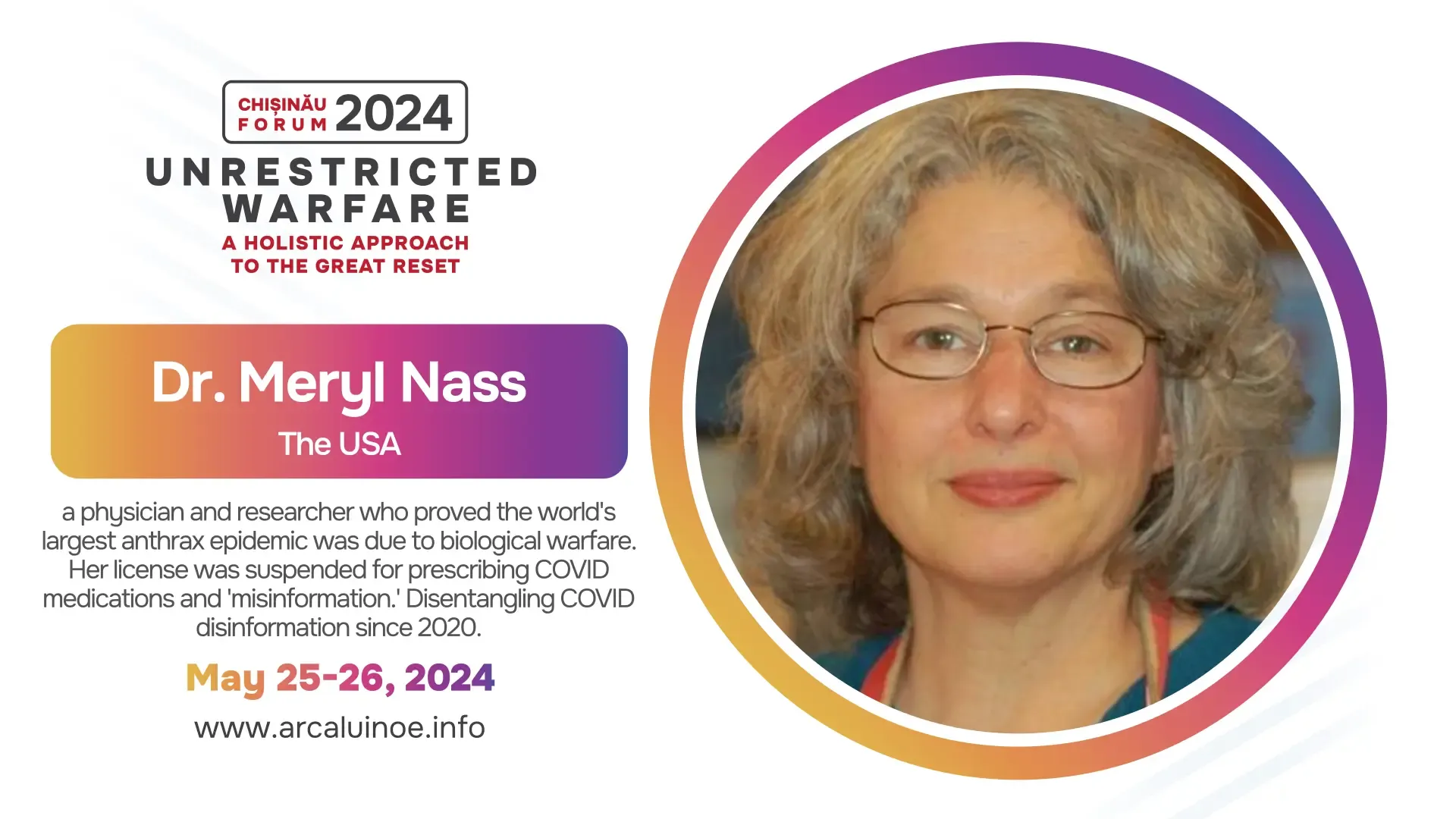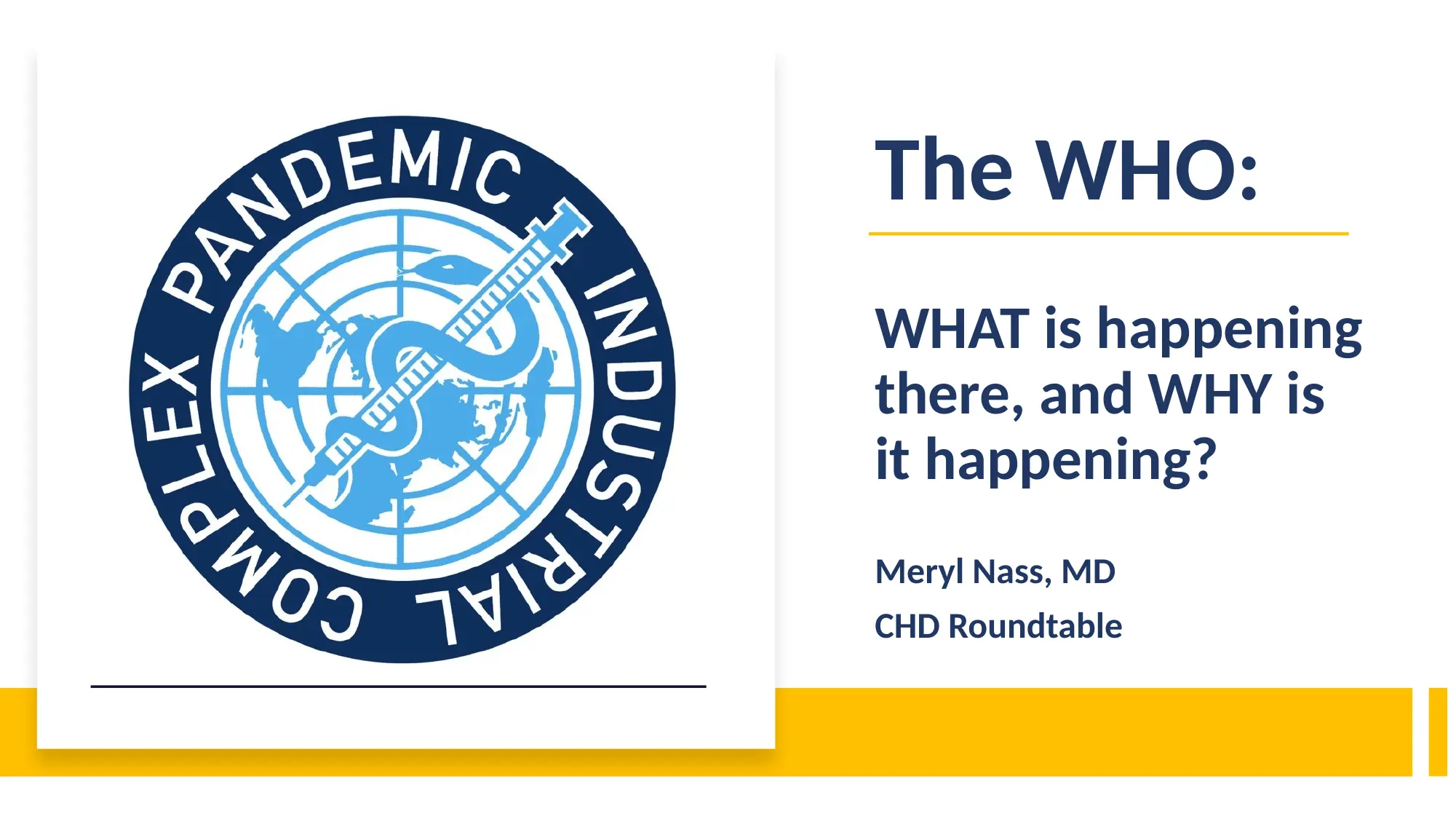
The World Health Organization, funded 85% by its donors and only 15% by dues from its member states, has learned to dance to the tune of its donors. Who are its donors? Some are members states, some pharma companies, and some philanthropies--but if you add up the organizations founded by the Bill and Melinda Gates Foundation (recently renamed the Gates Foundation), then Gates is usually the #2 funder of the WHO.
75% of the WHO budget goes to projects specified by its donors. Only 25% of the budget is spent on discretionary projects.
The people behind the WHO, including the US and UK in particular, have chosen to remake the WHO into a biosecurity agency with some military characteristics. Furthermore, they want to transform it from a charitable and advisory agency into a governing agency for public health emergences, which the WHO will unilaterally declare.
To this end, massive amendments to the existing International Health Regulations (IHR) have been proposed, along with a new Pandemic Agreement. Both documents are actually treaties. They are supposed to be voted on during the final week of May 2024.
However, with a week to go before the World Health Assembly (WHA) (composed of all the WHO members) meet, there is no final draft of either treaty.
These are the two documents being considered.
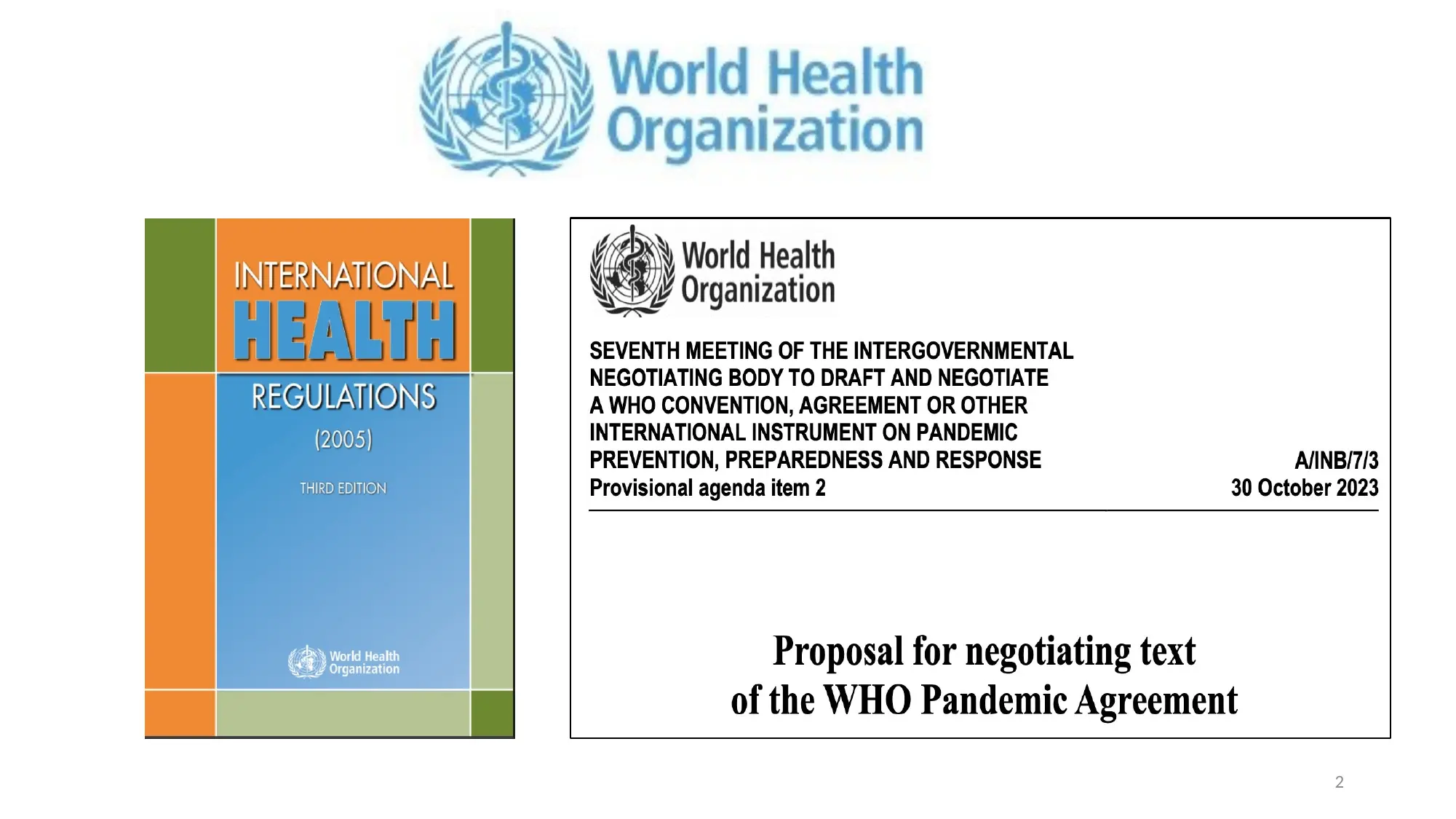
These documents presage an expectation of many more pandemics to come.
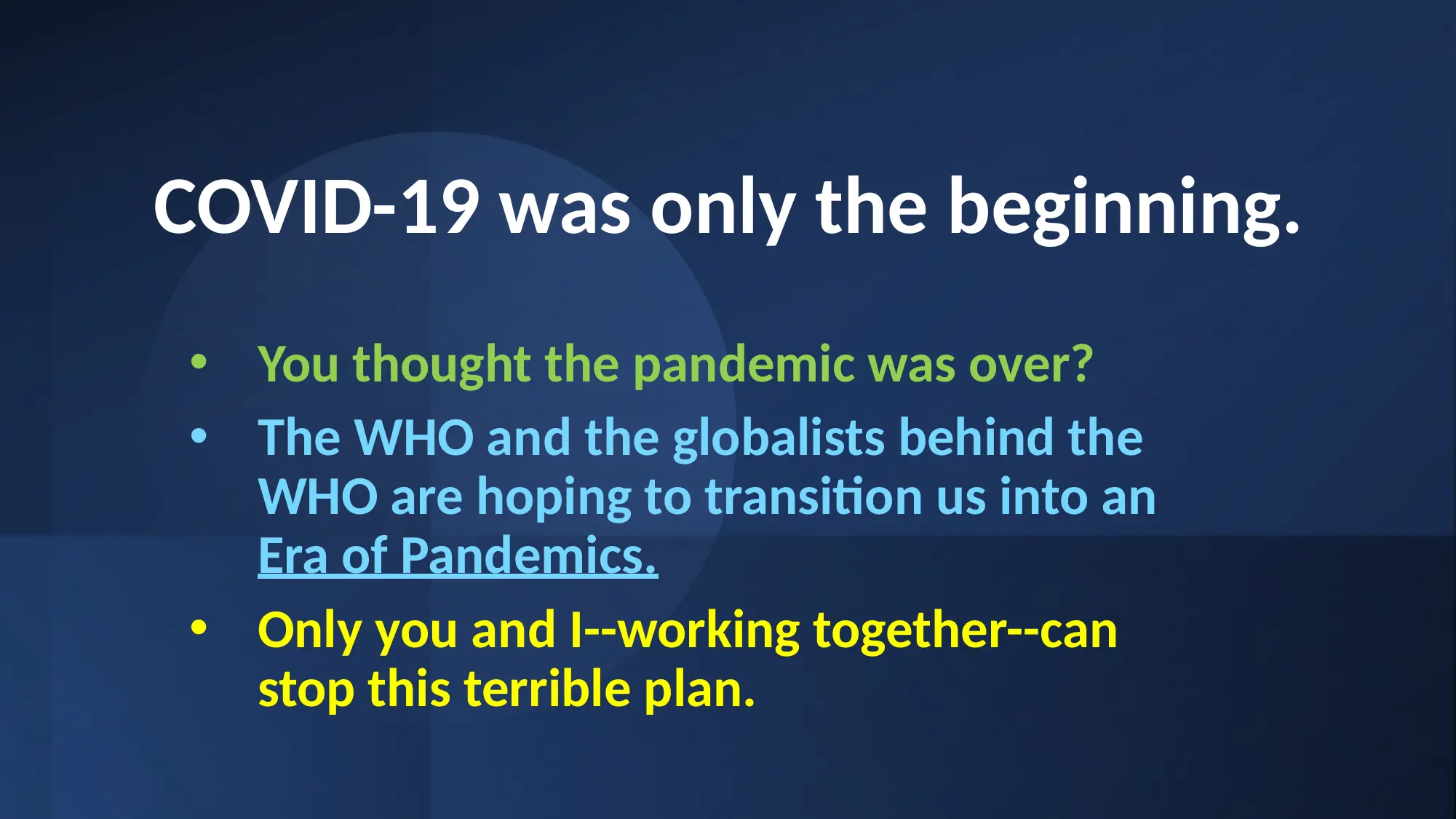
The US government expectation is for more pandemics.
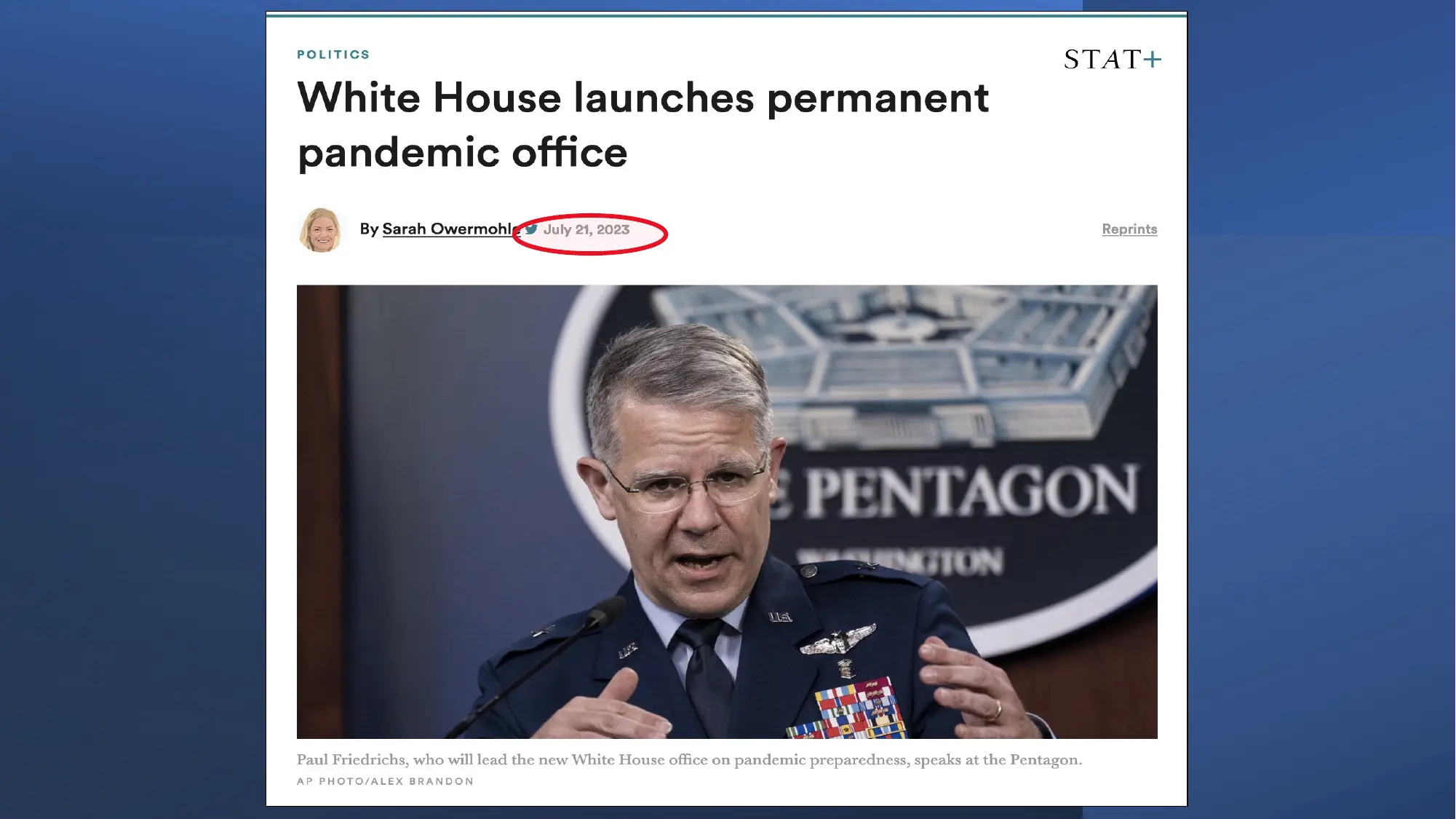
The UK has tried to habituate its population to the prospect of future lockdowns.
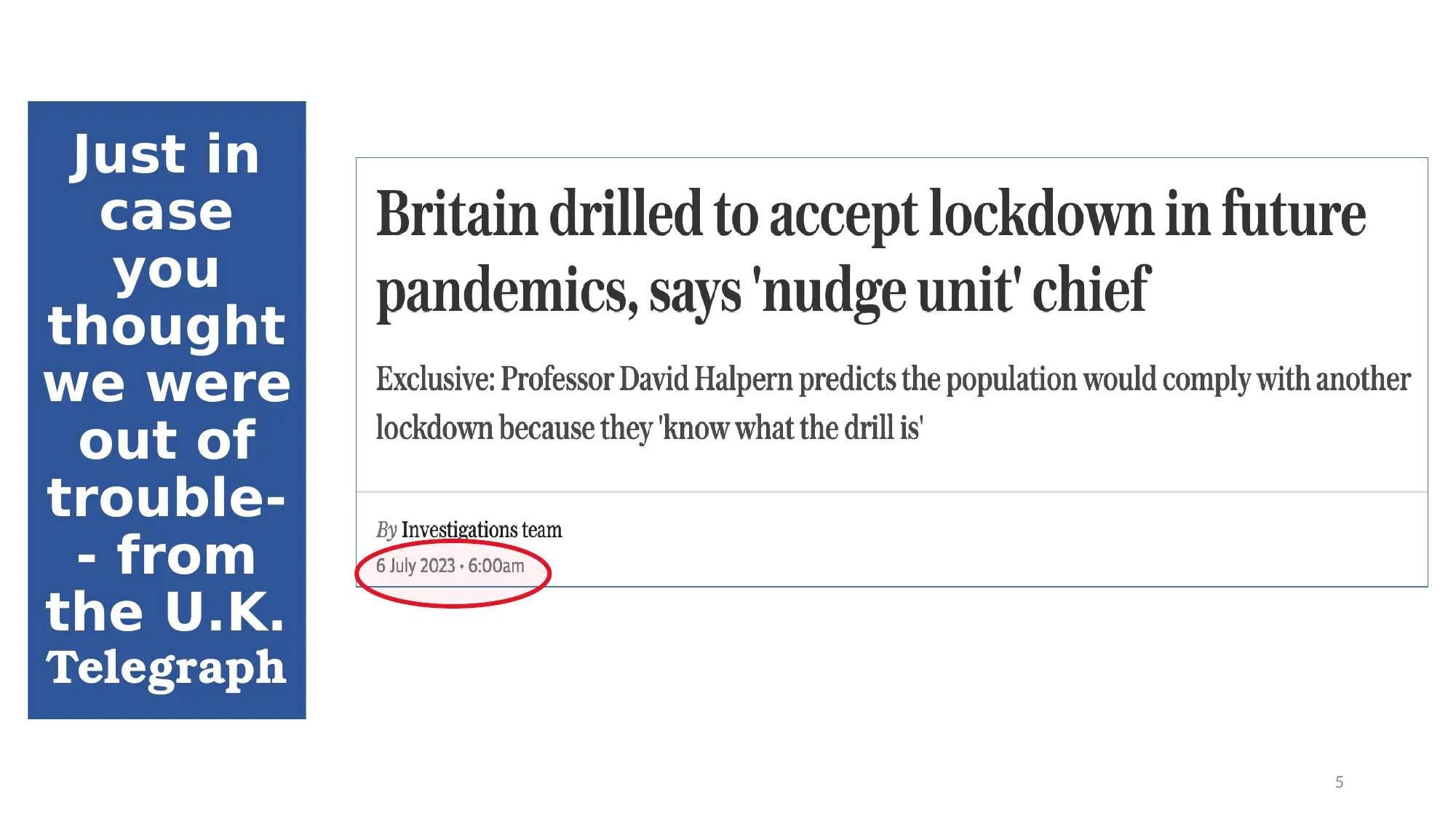
So, what do the WHO's controllers have in mind for the 2 documents? There have been many drafts of the documents, but below we list items of concern that are present in most of them. Countries must pass laws so that unlicensed vaccines with minimal or no testing can be rushed out to populations. Most drafts also required nations to pass laws that would give these experimental vaccines liability waivers, so citizens would be unable to sue for deaths or injuries from experimental products they were mandated to receive or chose to take voluntarily.
Under the guise of equity, nations could be told to transfer their own drugs, vaccines or other products to other nations during a public health emergency. Developing nations would receive 10% or 20% of pandemic drugs and vaccines for free or at low cost, but would have to pay top dollar for the rest.
Vaccine passports could be required. In the last draft of the Agreement, they could be paper documents as well as digital passports, but assuring authenticity is crucial to the drafters.
The WHO budget would increase by about a factor of ten. Thus WHO staff and contractors and all those associated with biodefense industries support it, as do the public relations firms and hangers on who also stand to benefit.
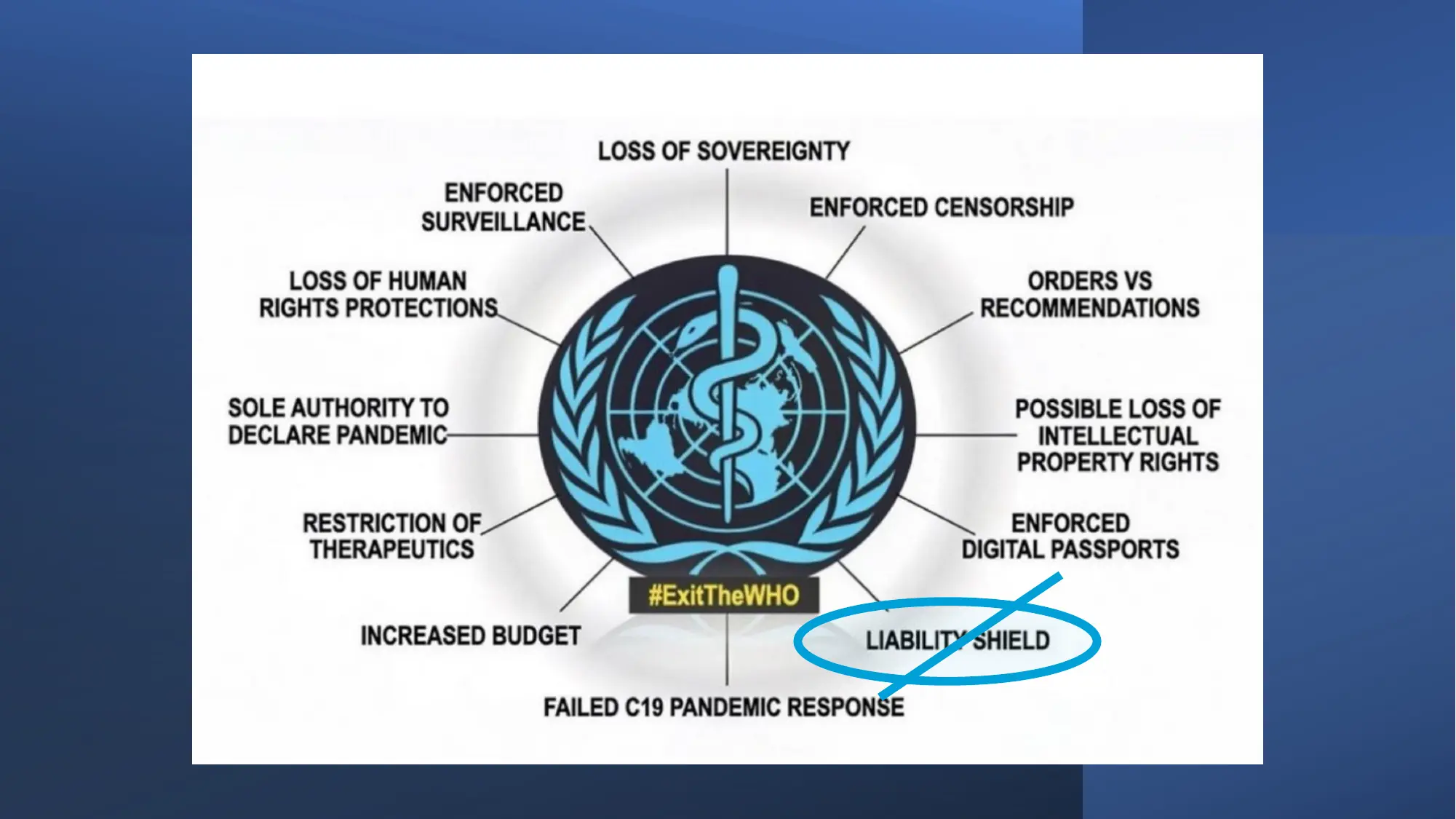
The original compilation draft of the amendments crossed out human rights protections. After many complaints, this language was added back in recent drafts. While that is all very well, in fact, the treaty and amendments have the power to shut down the following human rights.
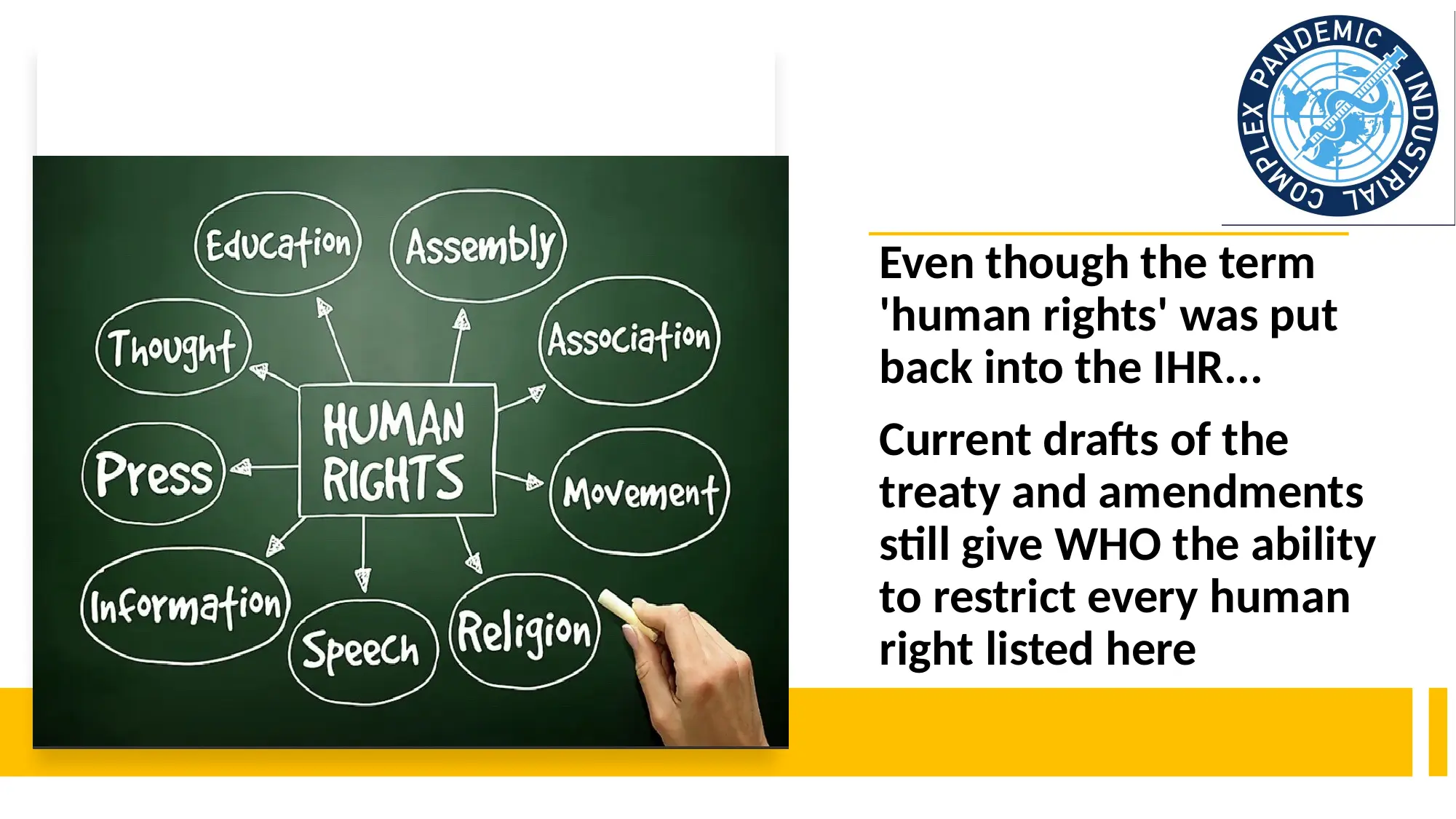
"One Health" has its own section in all treaty drafts, but it has been a contentious issue that could be pulled out at the last minute. "One Health" is the peculiar idea that the health of humans cannot be considered in isolation, but should instead be consider with regard to the health of animals, plants and ecosystems.
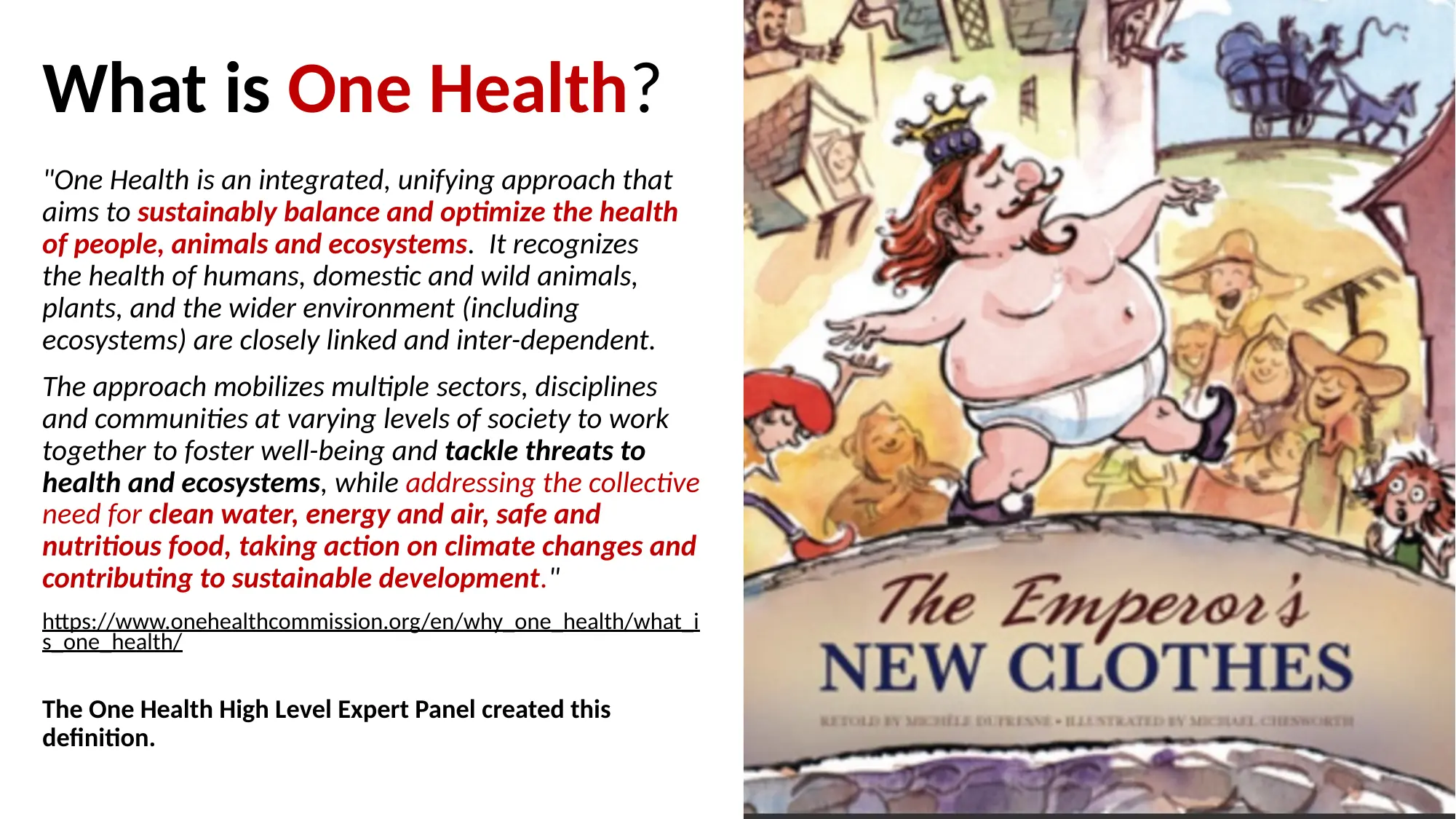
Buried in the One Health riddle is the bizarre notion that we must be as concerned about the welfare of non-human animals and the environment as we are about humans. What do its proponents mean by this?
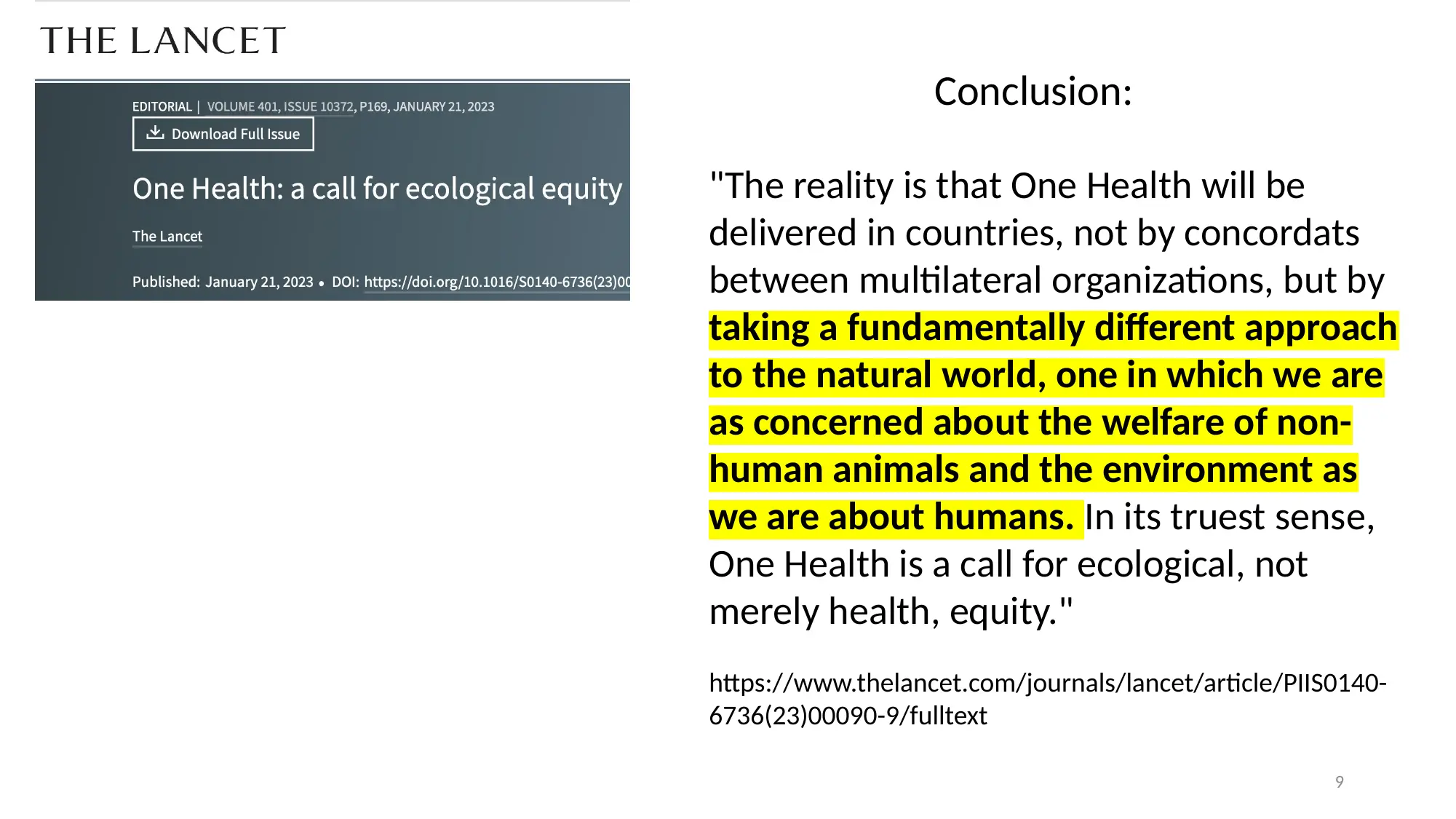
One Health can be viewed as a mechanism for placing everything in the world into the One Health basket, and then handing the basket to the WHO to manage whenever its Director-General declares a public health emergency of the risk of one relating to anything in the One Health purview.
Here is an example of what the One Health purveyors believe falls within the orbit of One Health:
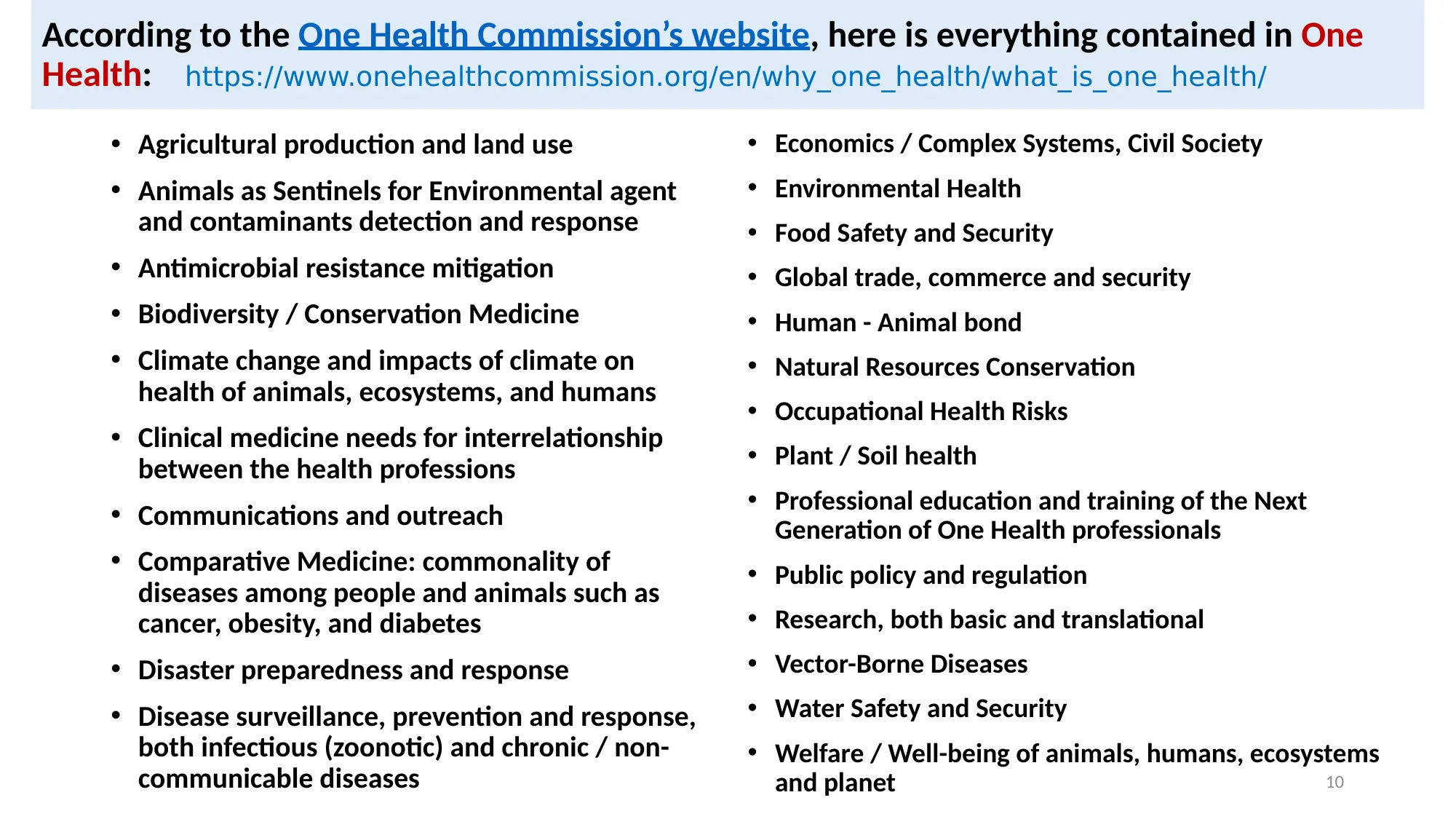
Some have begun referring to One Health in the following manner, including this author.
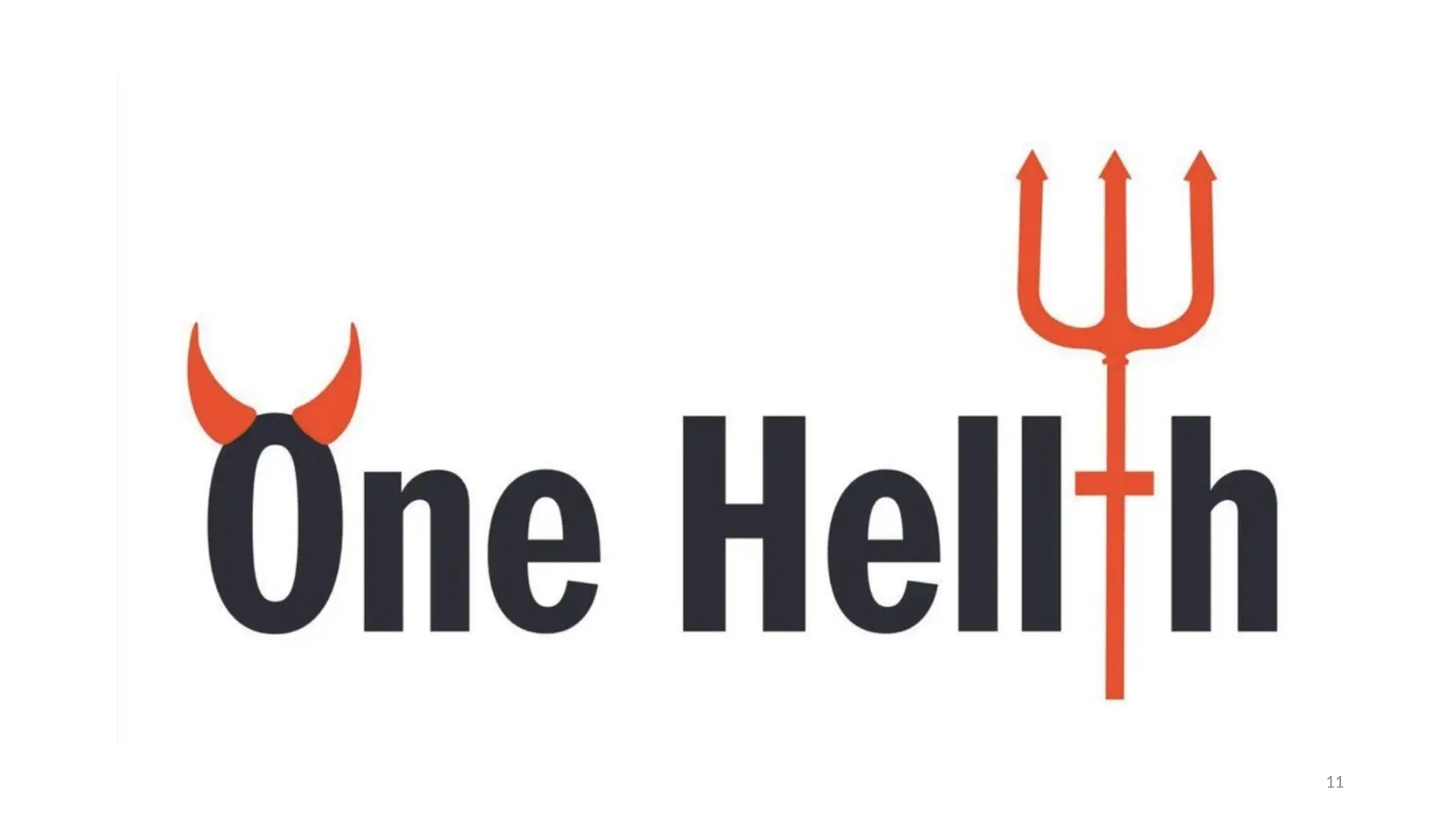
Another highly controversial issue contained in both treaties is the plan for the WHO to oversee a network of laboratories, termed the BioHub System, that would collect "potential pandemic pathogens," also known as biowarfare agents from nations around the world, study them, and share them with universities, research centers, pharmaceutical companies and others. Strikingly, the only version of the treaty that specified with whom the WHO would refuse to share these pathogens indicated the WHO would refuse to share them with "conflict and violence elements." This seems an extremely low bar for the proliferation of potential weapons of mass destruction. Not to mention that such proliferation is illegal according to the 1972 Biological Weapons Convention and the 2004 UN Security Council Resolution 1540. Below is a screenshot from the WHO website:
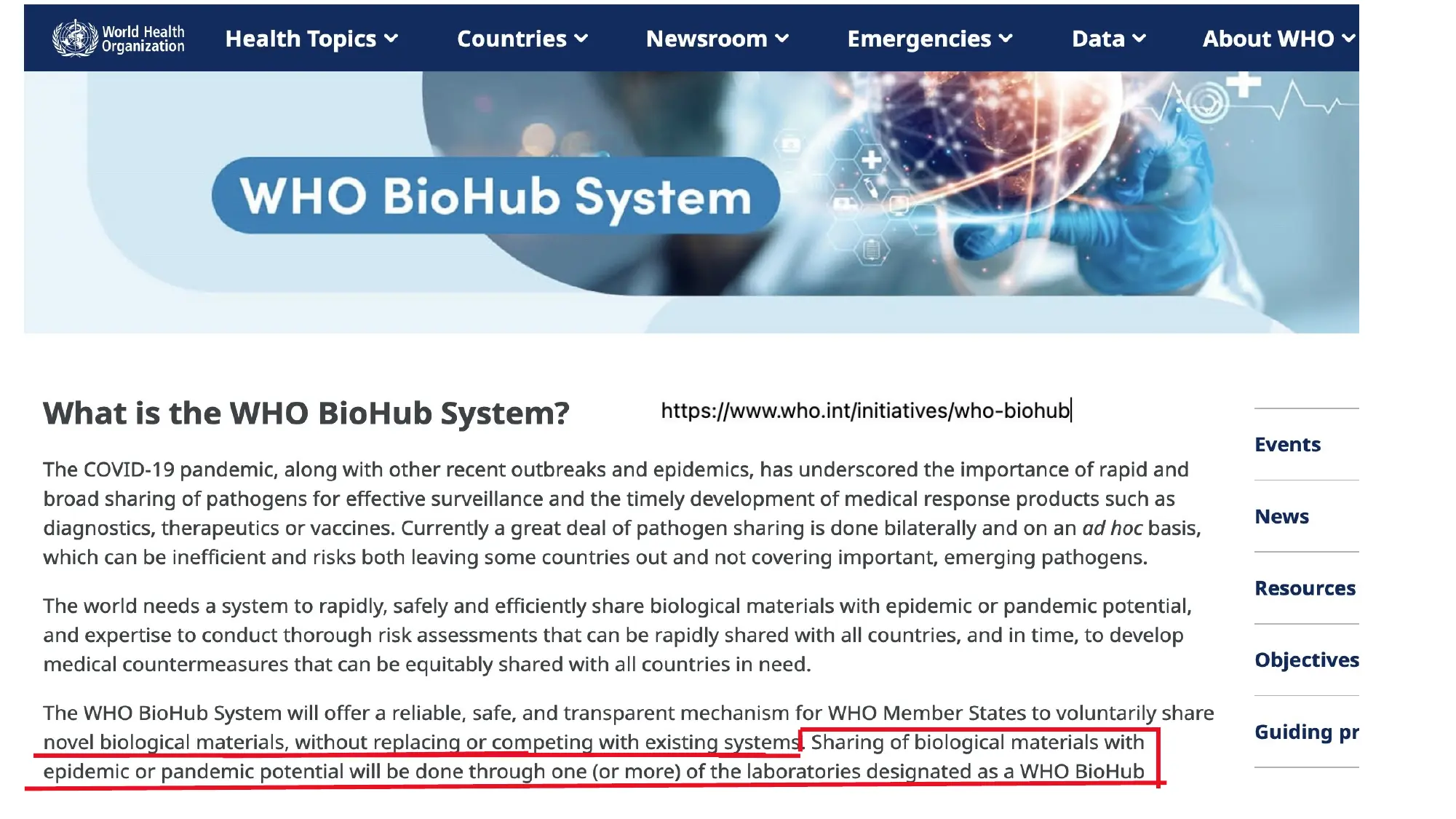
Screenshot from the October 30, 2023 draft of the treaty
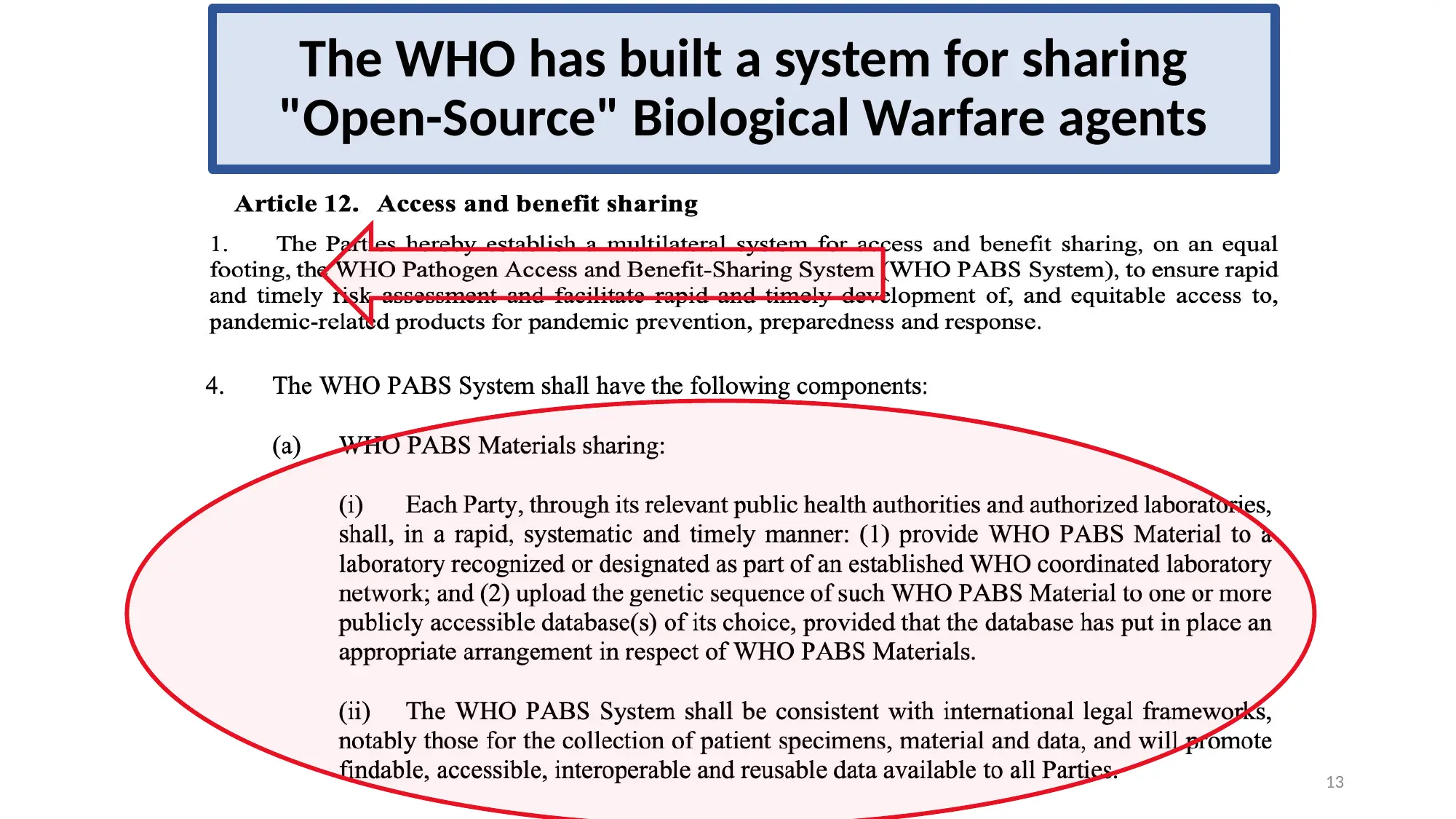
Below, in the February 14, 2024 treaty draft, the WHO was explicit that it wished to select scientists who would in fact supervise gain-of-function research, which takes microorganisms and makes them more virulent and/or more transmissible. This is also called biological warfare research.
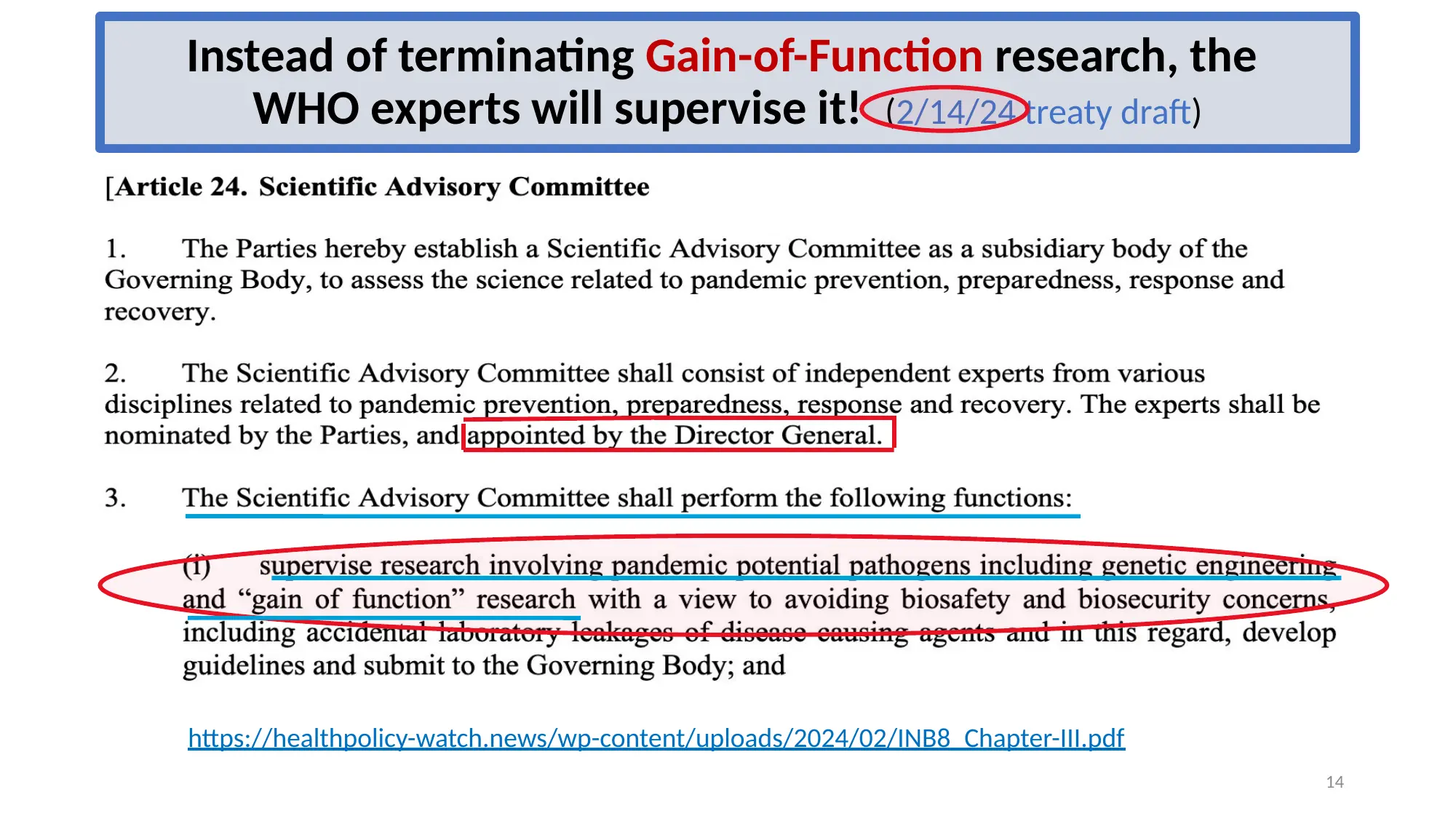
However, if every nation began trying to collect potential pandemic pathogens and studying them and sequencing their genomes, as the WHO directs them to do, there will likely be thousands of accidents as well as untold, unpredictable outbreaks that will result. When labs began studying SARS in 2002, there were 5 or 6 lab leaks in Beijing, Taiwan and Singapore with several deaths resulting. Here in the US, the CDC-USDA program that monitors research on pandemic pathogens receives 200 reports of accidents per year. Just in the US. There must be thousands of accidents worldwide. Most are covered up. Why would we want to increase the number of such labs and site them in every country?
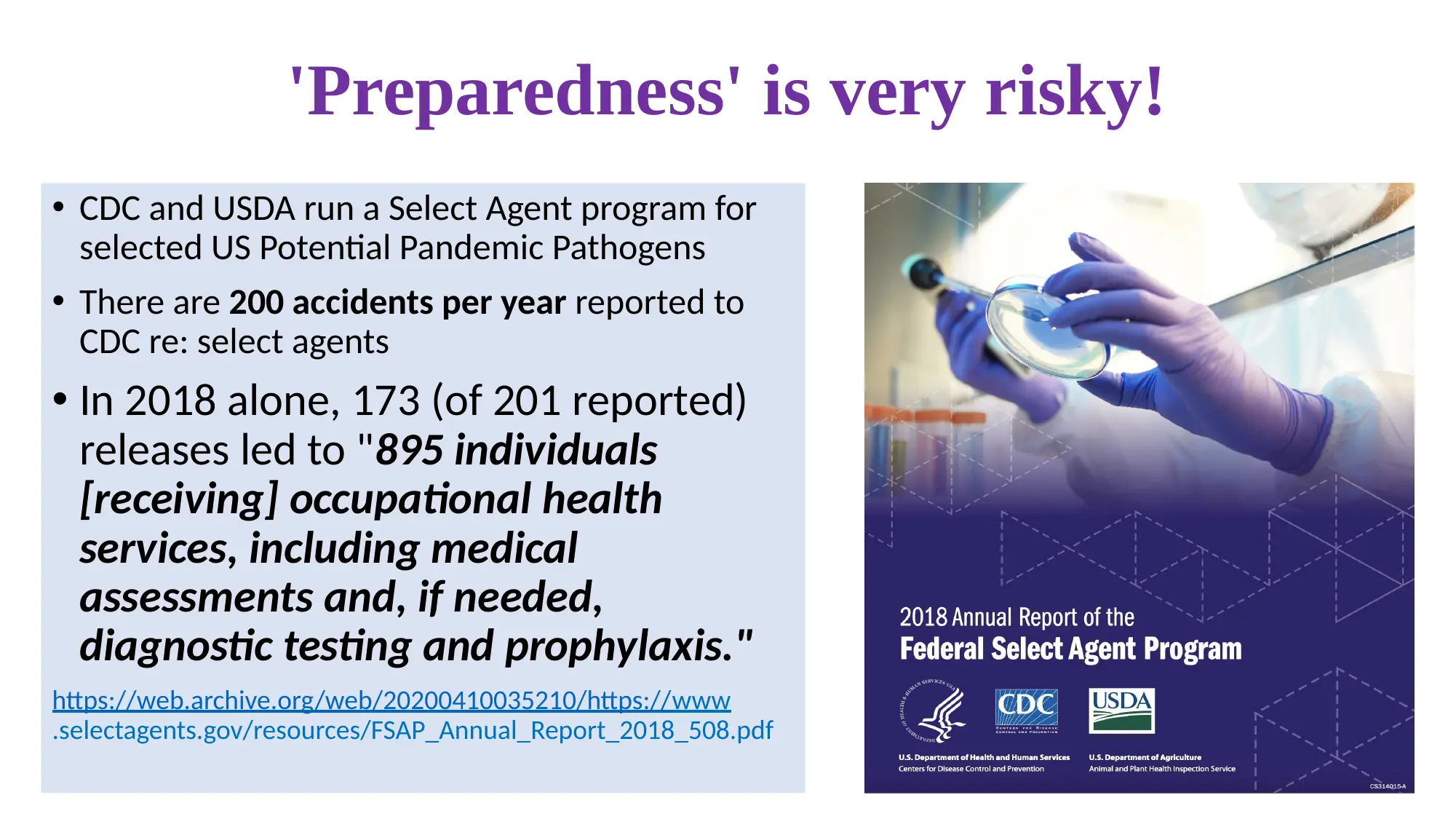
It turns out the WHO did not wait for its 194 members to approve the treaties, with their proposed Pathogen Access and Benefit Sharing system and the BioHub lab network. No, the WHO established the BioHub system 3 years ago.
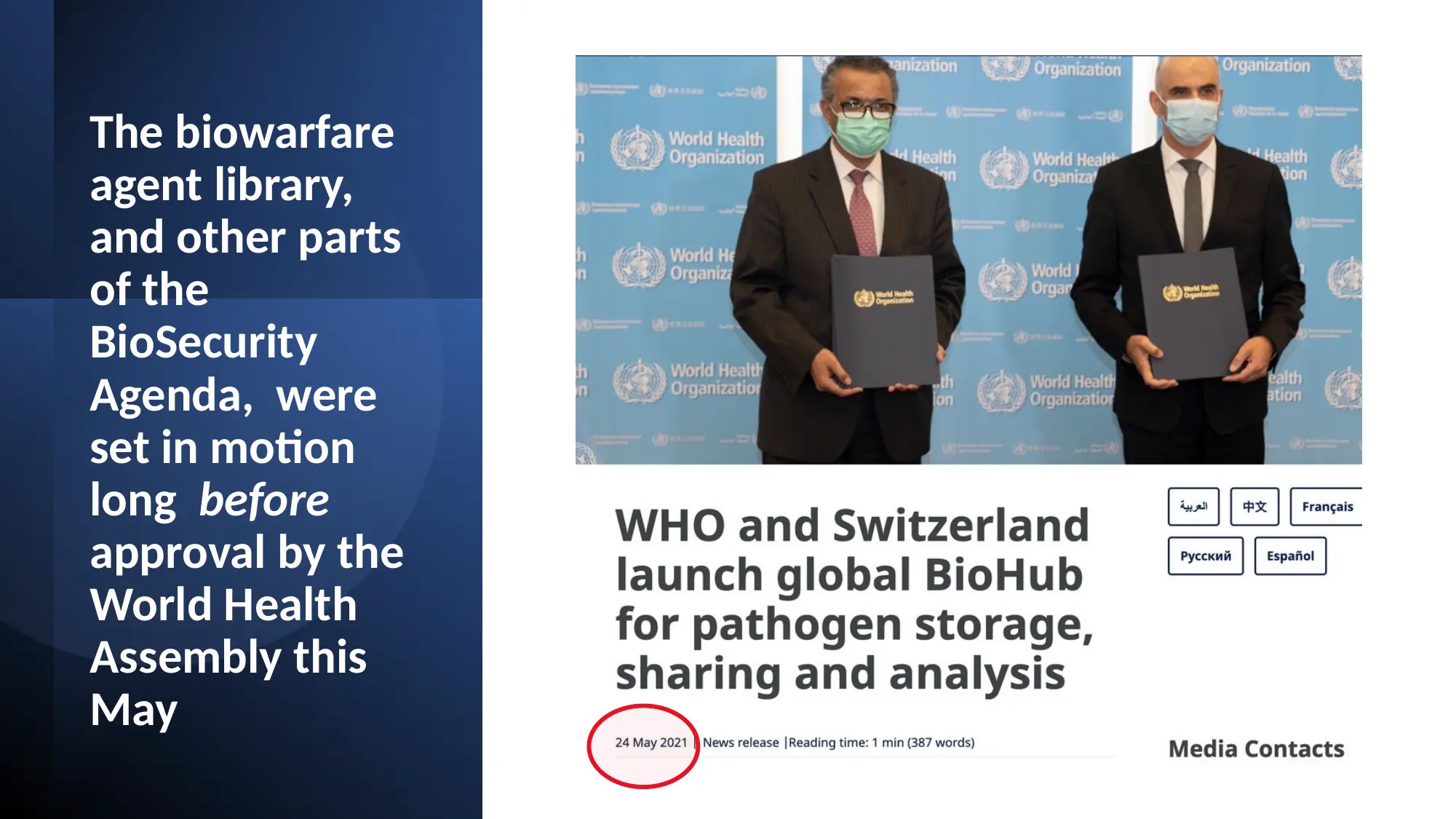
While the US started spending on the order of $7 billion per year on biodefense after the anthrax letters of 2001, the spending was primarily contained within the United States. But by 2014 the Obama administration announced it would pay for over 40 additional countries to build their own biosecurity systems.
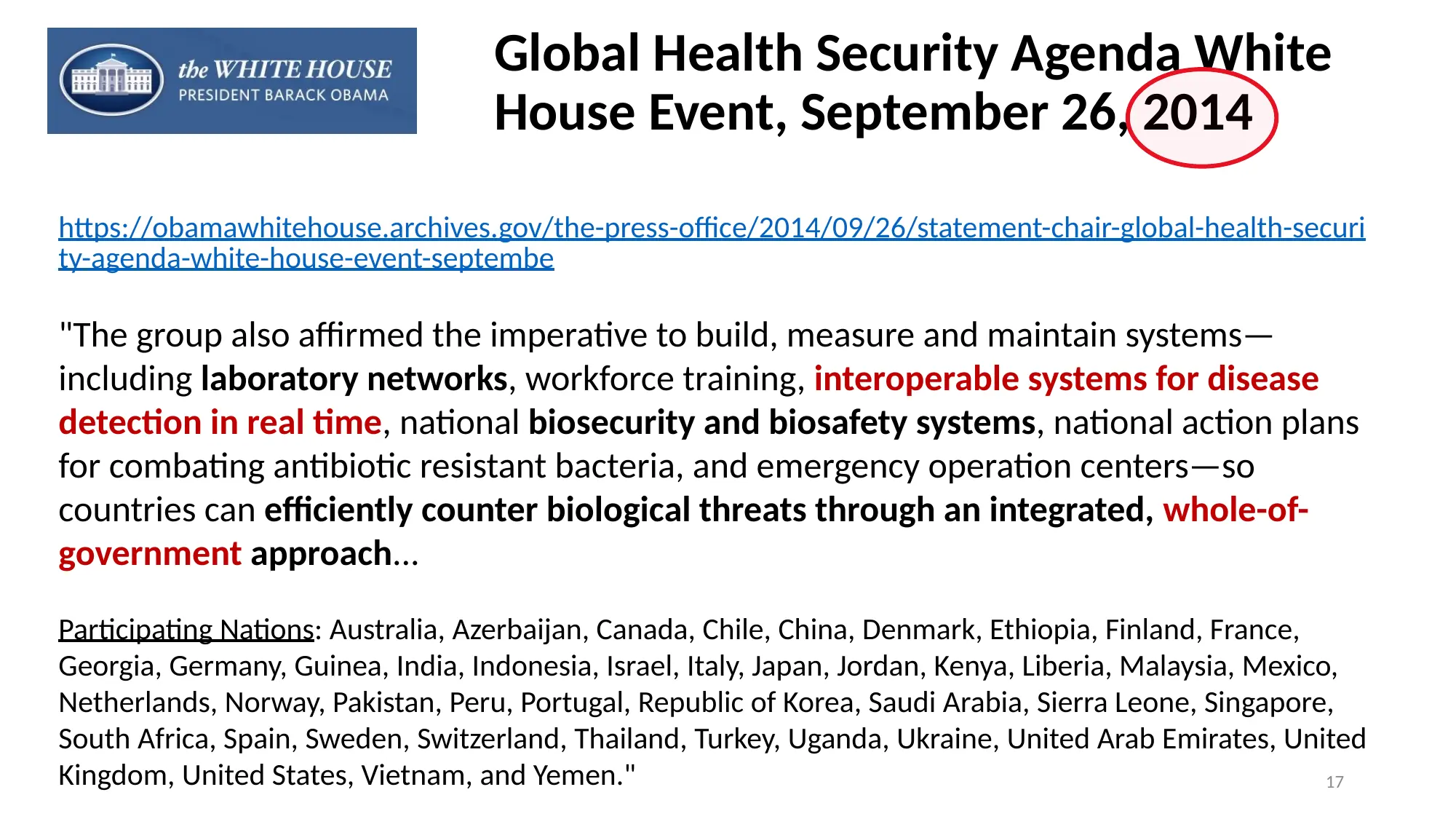
Two years ago, the Financial Intermediary Fund started seeking donations to assist nations with their pandemic preparedness. The name changed to Pandemic Fund, jointly managed by the World Bank and WHO, and the US is its major donor. Less than $2 billion dollars have been promised, far short of what was desired.
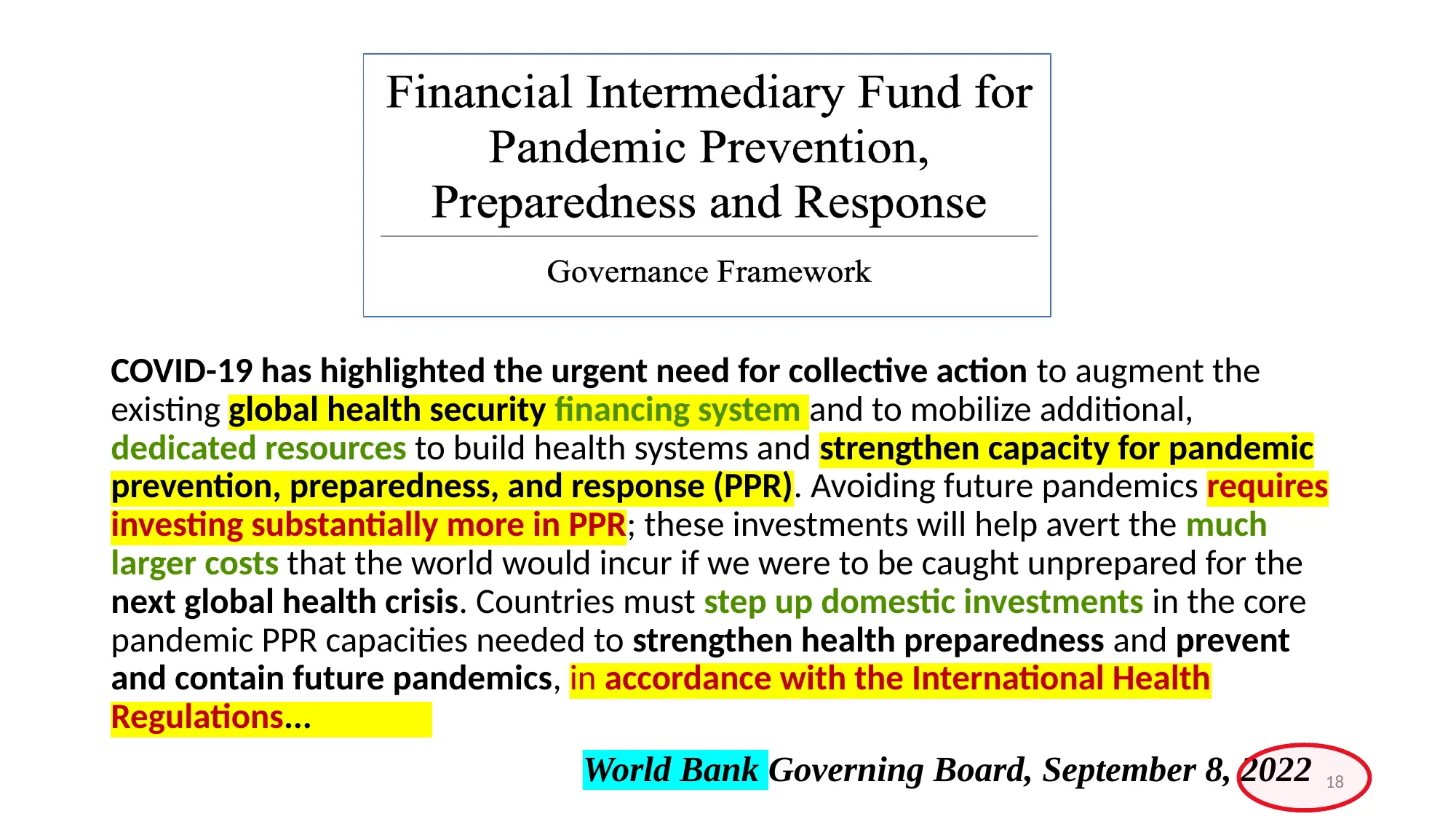
Meanwhile, other biosecurity alliances are being established. The project below links the African CDC, the WHO and the Canadian military together to establish considerably more surveillance in Africa.
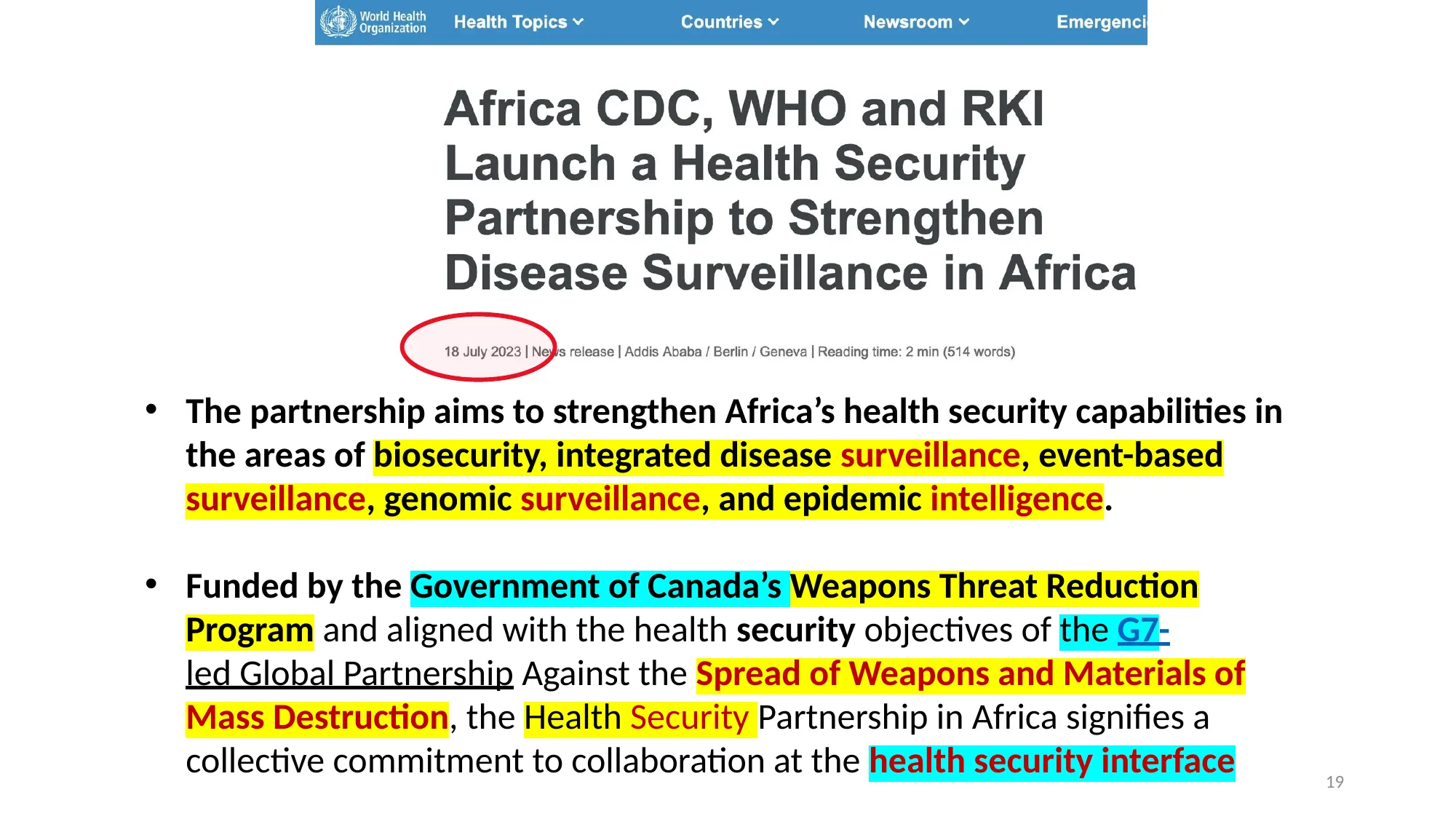
Below, the European Union rolled out its global health strategy last year, informing us of its intention to help shape the new "global health order." Furthermore, the EU wants the WHO situated at the core of global health governance.
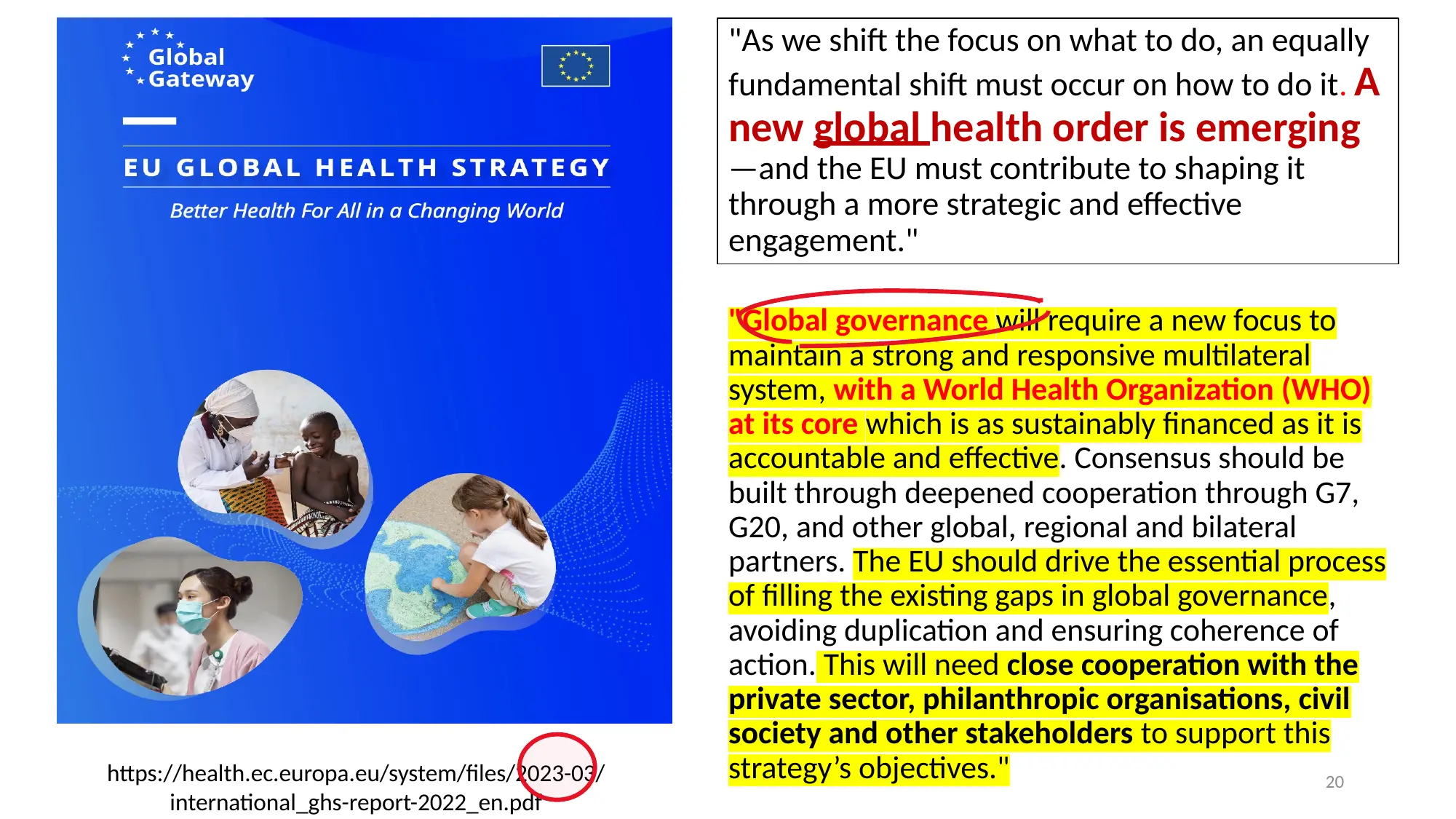
The Lancet is among many organizations that have created a One Health program. Many $billions have been shoveled into One Health institutions around the world, and One Health is embedded into US domestic law and multiple federal agencies. Even though everyone has a hard time figuring out what it is supposed to do.
The Lancet One Health Commission explained that its ambition included "galvaniz[ing] transformations in global governance" among other broad changes it wished to galvanize.
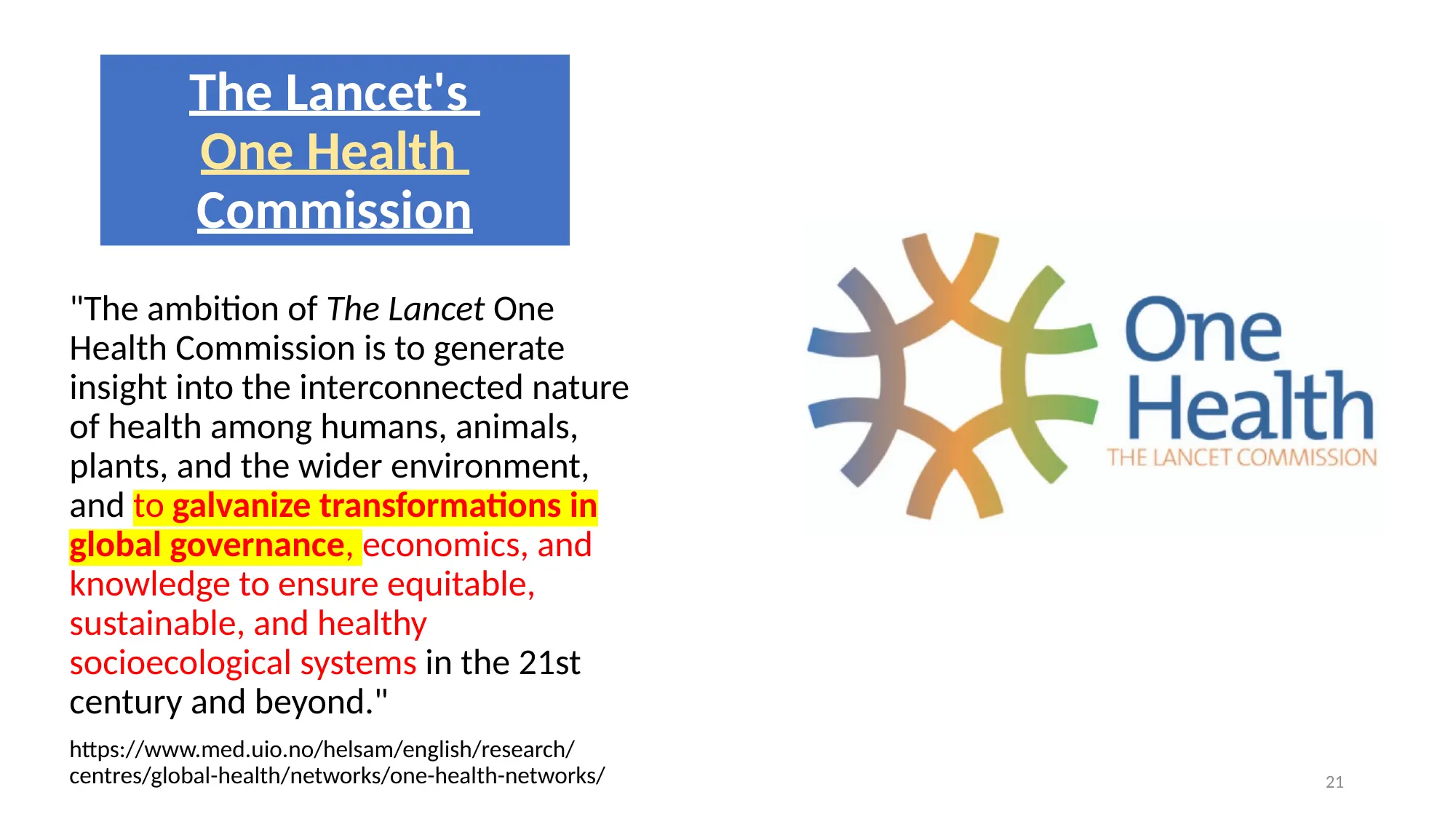
What if the nations of the world reject the WHO's bold power grab in May 2024, because they may be fed up not only with its two rotten treaties that provide no assistance to anyone, but also with its rejection of the rule of law?
The International Health Regulations require that final drafts of amendments be tabled 4 months in advance of a vote. Other documents, like the new pandemic treaty, must be tabled 6 weeks in advance of consideration at a WHA meeting. However, the WHO bureaucracy pretends these rules do not exist, or that they do not apply to them. So, the WHO bureaucracy told the WGIHR committee working on the amendments, and the INB committee working on the treaty to keep negotiating right up until the meetings start, or perhaps even after that.
This means that the home countries will not have time to review the documents before they are voted on. And the negotiators may be so exhausted they won't put careful eyes on the final versions.
Similarly to the way they ignored their rules requiring final versions weeks or months in advance, the WHO bureaucracy pretends that the Biological Weapons Convention and the UN Security Council Resolution 1540 do not exist, because acknowledging their existence would scuttle the WHO's illegal and illegitimate plans for proliferating pandemic pathogens.
Don't worry, because the U.N. has its own separate plan for governing the world, instead of or in addition to the WHO's plan. Like the WHO Director-General's ability to unilaterally declare an emergency and then manage it, the UN Secretary-General would be able to do the exact same thing. But the possibilities for the Secretary-General are even greater, because he could govern not only health emergencies, but any type of emergency that he choose to designate as a "global shock," requiring no concurrence from the General Assembly or anyone else.
Secretary-General Guterres is scheduled to ask the General Assembly for this power when it meets in September 2024.
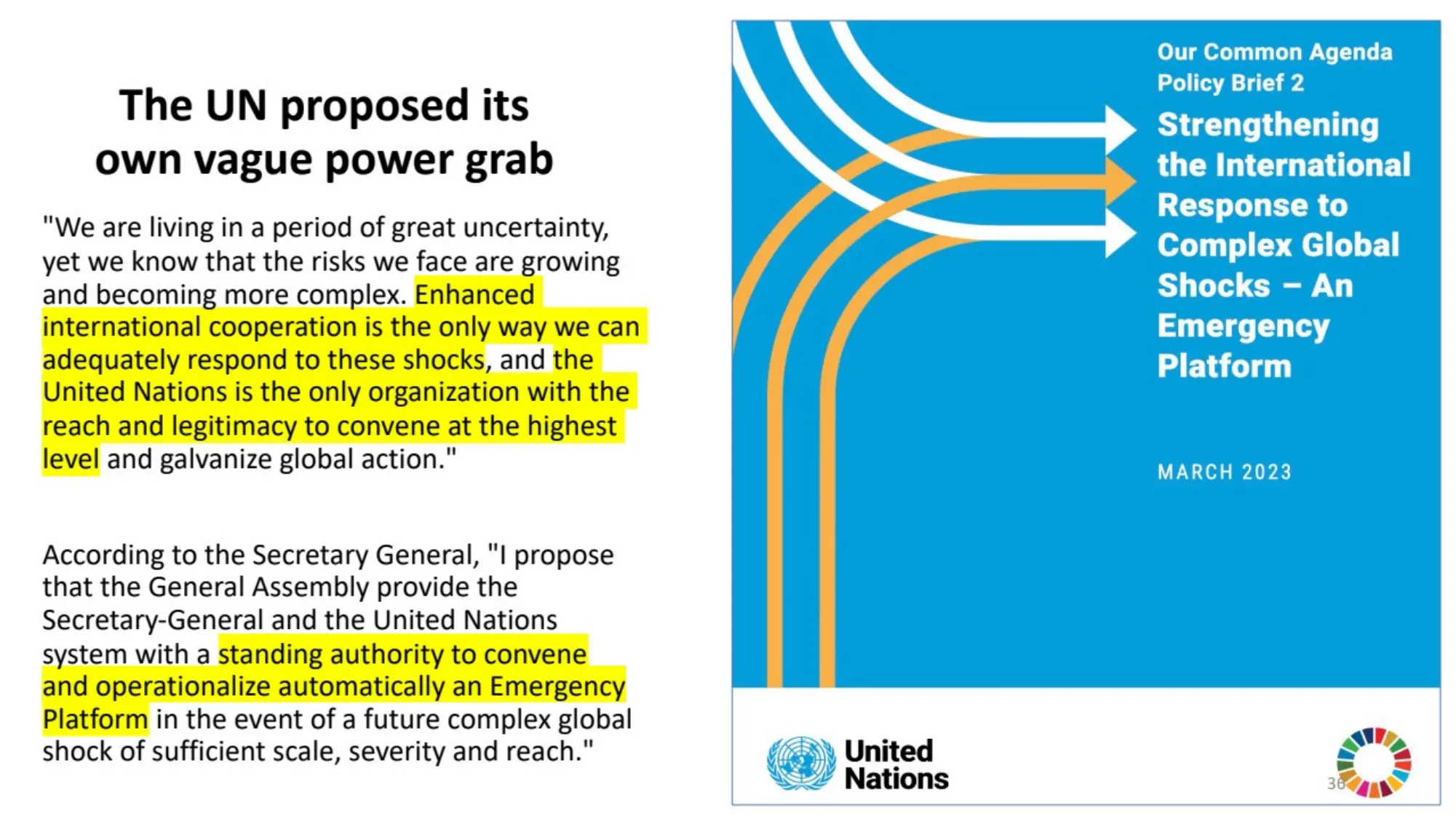
Fortunately, the people and some of their lawmakers are fighting back. Forty-nine US Senators have demanded that the President submit the treaty to the Senate for ratification, where it will almost certainly fail, given the need for a 2/3 majority to pass.
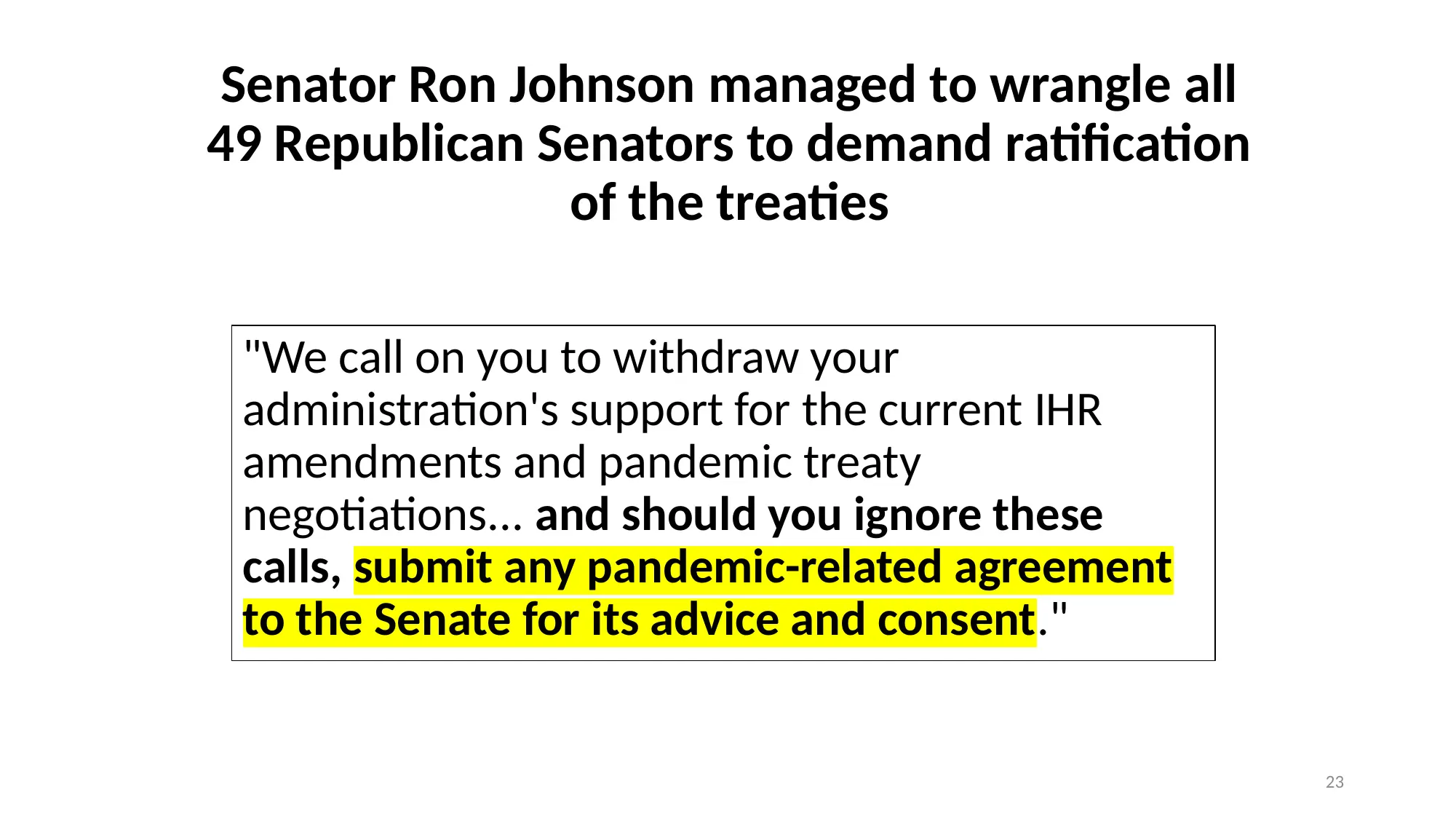
22 of the 50 Attorneys-General have said they will resist any attempt to allow the WHO jurisdiction in their states, thus protecting their citizens.
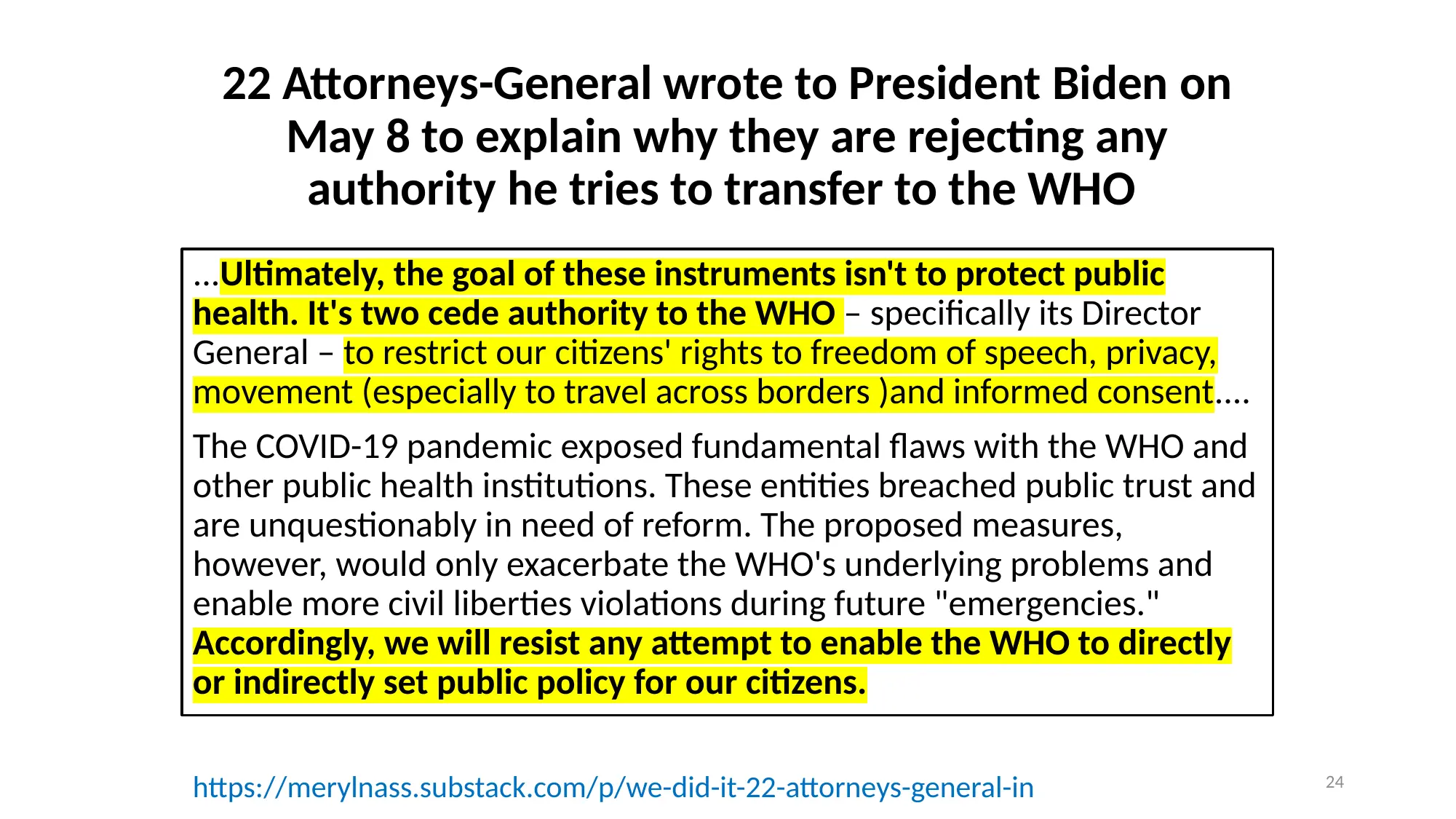
Several US state legislatures have passed laws denying the WHO jurisdiction in their states. The federalist system of government in the US, coupled with the Tenth Amendment to the Constitution, grants the states, and not the federal government, authority over healthcare.
I encourage people of other nations to search their laws to see if it is in fact legal for government officials to sign off on treaties that transfer sovereignty to an unelected, supranational organization that relies on private funding.
The law in Ireland requires a referendum before that can happen.
In the Netherlands, such a transfer must be approved by two different sitting parliaments; in other words, it must be voted on twice, once before and once after an election.
Estonian parliamentarians have challenged their government's authority to transfer such powers without parliamentary approval.
And in the end, if the people have a legal noose placed around their necks, it will only tighten if the vast majority allow it. When most people refuse to obey unjust laws, the laws will have to change, or the leaders will have to change. They cannot jail all of us. Hopefully, enough of us will be committed to a better, more honest, more law-abiding life, one in which we strive to achieve a world based on democratic principles.
Thank you.
